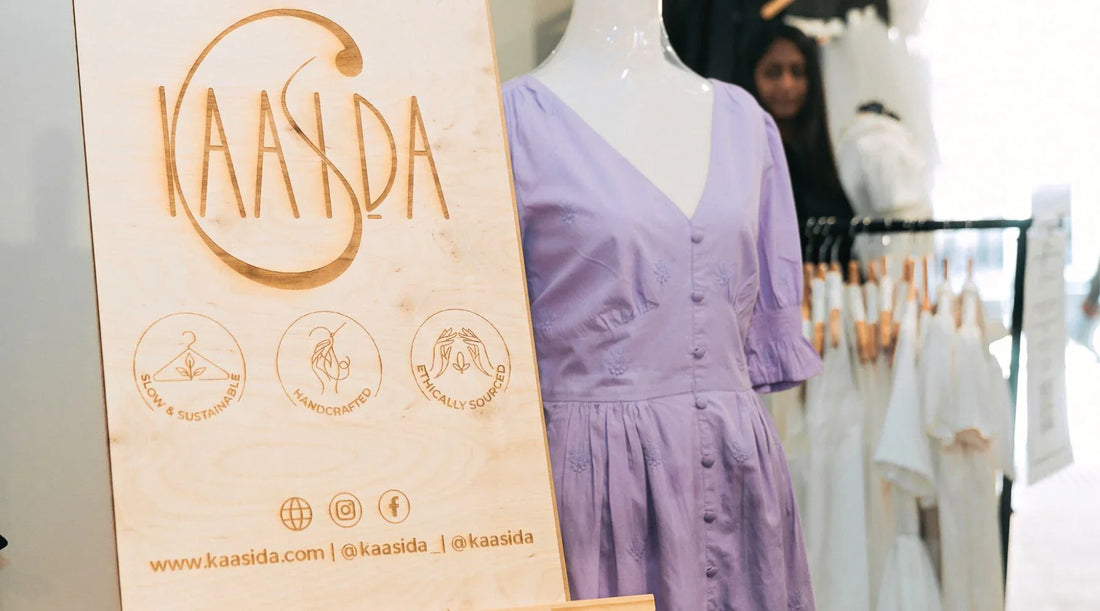In today's global economy, consumers have the power to make a difference by choosing to support businesses that prioritise social and environmental responsibility. Learn more about what is fair trade and sustainable fashion and why it matters so you can make informed decisions to create a more equitable and sustainable world.
What is fair trade?
Fair trade is a social movement and a market-based approach to addressing labour rights and environmental sustainability. The idea is to create a fair-er and more equitable trading system by ensuring that the makers of goods are paid a fair price for their products and that their working conditions meet basic standards of safety and dignity.
Fair trade helps to create a more equitable and sustainable world. By supporting fair trade products, you can help ensure that makers are paid a fair price for their labour, have access to resources and services that improve their livelihoods, and that their working conditions are safe and dignified.
In addition to the benefits for makers and the environment, fair trade also benefits consumers by providing them with high-quality products that are produced with care and attention to detail.
Fair trade is not just a way to buy products but a way to support a better world for all.
What is sustainable fashion?
Sustainable fashion has become an increasingly popular topic in recent years, and for a good reason. The fashion industry is one of the largest polluters in the world, with a significant environmental impact that spans from the production of raw materials to the disposal of garments. But what exactly is sustainable fashion, and what can be done to promote more sustainable practices in the industry?
Sustainable fashion is a term used to describe clothing, shoes, and accessories that are made with consideration for the environment, social responsibility, and ethical manufacturing practices. This means using eco-friendly materials, minimising waste and pollution, and ensuring fair and safe working conditions for workers. Sustainable fashion also involves creating long-lasting garments that can be worn for years rather than fast fashion items that are quickly discarded.
It's important to recognise that sustainable fashion is not just about the materials and practices used in production but also about the broader societal issues that impact the fashion industry. This includes issues like worker exploitation, labour rights, and the impact of the fashion industry on marginalised communities.
Slow fashion is a big part of sustainability in fashion. Coined by fashion and sustainability pioneer Kate Fletcher, the term 'slow fashion' represents mindfully and consciously crafted fashion that is centred around people, animals, and the environment. Slow fashion strives to reduce consumption and limit production by delivering quality that lasts longer, and this helps to bring down textile waste, which has been clogging our landfills for years.
Sustainable fashion is about more than just the clothes we wear - promoting ethical practices, reducing waste and pollution, and advocating for a more just and sustainable world. By making conscious choices about the brands we support, the clothes we wear, and the actions we take, we can all play a role in promoting a more sustainable fashion industry.
Sustainability is at the heart of slow fashion. It focuses on sourcing, manufacturing, and designing environmentally friendly processes. This can be achieved by using natural, organic fabrics, biodegradable packaging, and engineering zero-waste patterns. By choosing sustainable practices, we can help to preserve the environment and create a better world for future generations.
What sustainability looks like at Kaasiḏa®
Sustainability is at the core of everything we do at Kaasiḏa®. We prioritise the use of certified natural and organic fabrics, adopt circular fashion and zero waste practices, employ compostable packaging, collaborate with sustainable partners, and promote transparency in the production process by providing our customers with information about the makers of their clothes.
Our commitment to sustainability reflects in our practices, which include the following:
- Small-scale production: We produce our garments in limited quantities to avoid overproduction, and we only order the necessary raw materials to meet the current manufacturing needs.
- Certified organic fabrics: We use 100% natural and organic fabrics certified by the Global Organic Textile Standard, ensuring that our clothing is of high quality while being eco-friendly.
- Eco-friendly packaging: We use biodegradable packaging that breaks down completely in the environment.
As a consumer, you need to start asking brands questions like - who made it, how was it made and what raw materials went into it. If a brand cares about the planet, they will have the answers for you.
When it comes to sustainability, it's a long road. But it is important to start somewhere and start now. In the words of Arthur Ashe, "Start where you are. Use what you have. Do what you can."
With love,
Kaasiḏa

